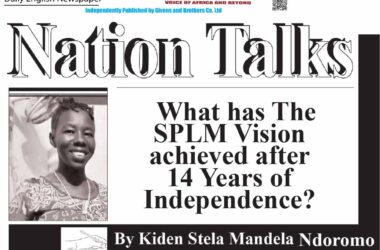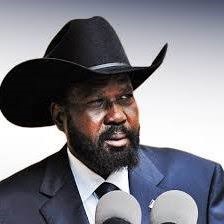By Philip Buda Ladu
With less than 10 days remaining until the Reconstituted Transitional Government of National Unity (R-TGoNU) loses legitimacy on September 22, 2024, the presidency and key figures in the revitalized peace agreement are racing against time to decide whether to announce elections or extend the transition period.
According to the September 2018 Revitalized Peace Agreement (R-ARCSS) and the extended roadmap, the R-TGoNU is set to dissolve on September 22, three months prior to the scheduled elections on December 22nd. However, uncertainty looms as the government struggles to maintain its legitimacy.
The High-Level Implementation Committee of the roadmap, responsible for facilitating inter-party dialogue, assessing the status of peace implementation, and coming up with scientific findings and technical recommendations on the best path forward has completed its review.
The committee and National Transitional Committee (NTC) received comprehensive detailed reports from electoral institutions ranging from the National Constitutional Review Commission (NCRC), National Bureau of Statistics (NBS), Political Parties Council (PPC), National Election Commission (NEC), and the Ministry of Justice.
Furthermore, the committee received reports from the security mechanisms including; Joint Military Ceasefire Commission (JMCC), Joint Defense Board (JDB) and Joint Transitional Security Committee (JTSC), on their various institutional activities.
Speaking to the media after the committee’s meeting on Wednesday, officials said the report from the electoral and security institutions indicates that the majority of the activities in the provisions of the Revitalized Agreement are not fully being implemented to the letter and spirit putting the possibility of holding elections at stake.
Senior representatives of political parties’ signatories to the 2018 R-ARCSS comprising of the SPLM-IG, SPLM-IO, SSOA, OPP and FDs discussed and brainstormed on the status of the agreement implementation about tasks accomplished, unfinished and those that are still pending in extensive meetings that lasted for days
Following those discussions, the peace signatories reached a consensus and signed a comprehensive report on findings and recommendations regarding tasks accomplished and pending provisions in the agreement that are critical to move the country towards a conducive atmosphere for holding free, fair and peaceful democratic elections.
The responsibility now lies with the country’s leadership to swiftly determine whether to hold elections or extend the transitional period, as the term and legitimacy of the interim unity government is set to expire in the coming days.
Dr. Martin Elia Lomuro, the minister of cabinet affairs and secretary general of the high-level implementation committee spoke to the media on Wednesday.
He said members of the committee and NTC as well as the political parties will present the final copy of the comprehensive report on the recommendations and findings from the electoral and security institutions to the presidency for endorsement.
“On the basis of our analysis, assessments and observations, we have made recommendations to the presidency and these recommendations are strictly technical based on the technical reports that we have received from the institutions that are concerned with the elections,” Lomuro said.
“Whatever decision that will be made by the extended meeting of the presidency which will include the heads of the various political parties would be a technical decision and not a political decision,” he continued.
Minister Lomuro emphasized the commitment of the high-level implementation committee of the roadmap to ensure that they maintain the peace that has been achieved under the R-ARCSS and carry the country forward until the people vote for their leaders.
“That is the commitment that we as a committee have got and we are here to support the leadership, the presidency which will sit and make a final decision” the cabinet affairs minister underscored.
Despite the hopeful beginnings, when President Salva Kiir and Dr. Riek Machar signed the peace deal to end the war, the journey toward lasting peace has been fraught with challenges, including numerous extensions and ongoing failures to comprehensively implement the agreement.
Ambassador Gen. (rtd) Charles Tai Gituai, Chairperson of the Reconstituted Joint Monitoring and Evaluation Commission (RJMEC), said although progress has been made in the past six years since the signing of the R-ARCSS, there are still many challenges.
Gen, Gituai earlier highlighted that the main challenges to the implementation of the agreement include insufficient political will, trust deficits among the parties, capacity gaps, and persistent levels of inter-communal violence in the states.
The peace monitor urged the government and other stakeholders to reflect seriously on the next steps to ensure the preservation of hard-won gains.
“We are still a long way from what was called for in the Preamble of the Revitalized Agreement, namely “to lay the foundation for a united, peaceful, and prosperous society based on justice, equality, respect for human rights, and the rule of law,” he emphasized.
Despite a 24-month extension of the Transitional Period in 2022, Gen. Gituai noted that key tasks such as completion of the unification of forces, various election-related preparatory tasks, and the making of the permanent constitution are still outstanding.
With several challenges and uncertainties around the election, R-JMEC boss cautions the peace parties to express political will in order to achieve sustainable peace.




